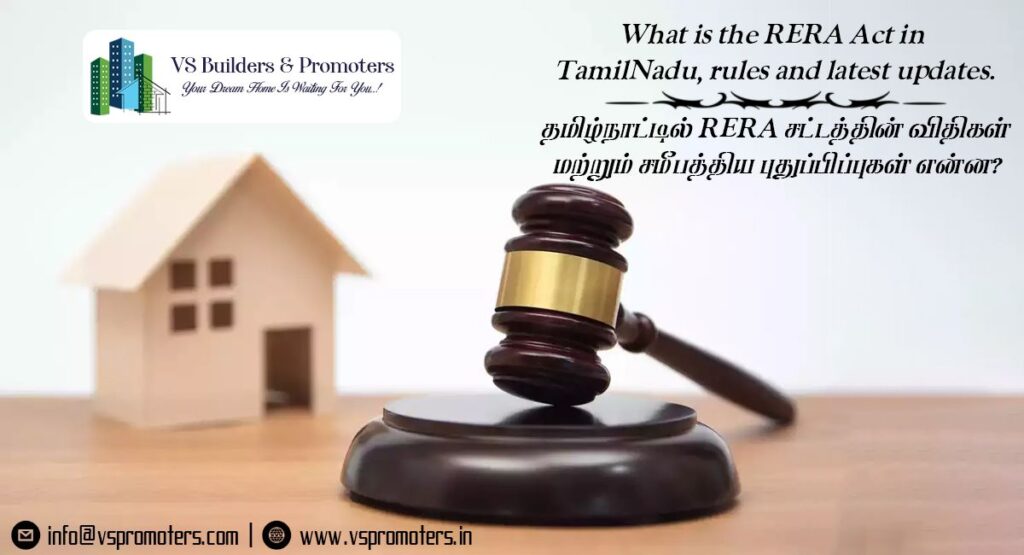
RERA, or Real Estate Regulatory Authority Act, came into force when the state government of Tamil Nadu approved its rules on 22 June 2017. As per this act, every developer, real estate promoter, and agent in the state must register with RERA on the official TNRERA website.
The purpose is to make every transaction and delivery of information within the real estate segment transparent and efficient. Not to mention, homebuyers can also access Real Estate Regulatory Authority Act to seek dispute reparation and reimbursement.
Functions of RERA:
Other functions of the RERA Act in Tamil Nadu are as below:
- Promoting fleet-footed reparation of disputes.
- Encouraging homebuyers and developers to access their rights.
- Overseeing the process for proper construction and development of real estate.
- Facilitating complete and efficient execution of a project.
- Maintaining a friendly atmosphere for carrying out real estate investments and other activities.
- Boosting accountability in the real estate industry and transactions taking place inside.
- Prevailing a transparent culture across entire real estate workings in the state.
Rules of RERA:
The rules of the RERA Act in Tamil Nadu are broken down into 9 and 20 chapters. Each of these chapters contains several unique responsibilities. However, the notable duties mandated by law are as below:
- The undertaking of complaint reparation in an organized manner.
- Rejection and approval of RERA registration application on a predetermined criteria basis.
- Acceptance of declarations made by promoters relating to their ongoing projects.
- Verification of necessary documents that a builder submits to register under RERA in Tamil Nadu.
- Overseeing and renewing agent licenses as well as applications.
The officials of RERA in Tamil Nadu have ruled that landowners are free from any liability in cases any undivided shares have been registered for homebuyers. This was after a lawsuit where a buyer filed a complaint against a housing project.
Buyers of this housing project were running this case against 12 people, among which 8 were landowners. Here, the confusion was whether landlords must come under this case. This judgment would have been different if the landlord had carried out a power of attorney in favor of a third party. However, the landowners were not a promoter since this was a joint venture.
For More Details:
Contact: +91 7094434780
Mail: info@vspromoters.com
Visit: www.vspromoters.in

